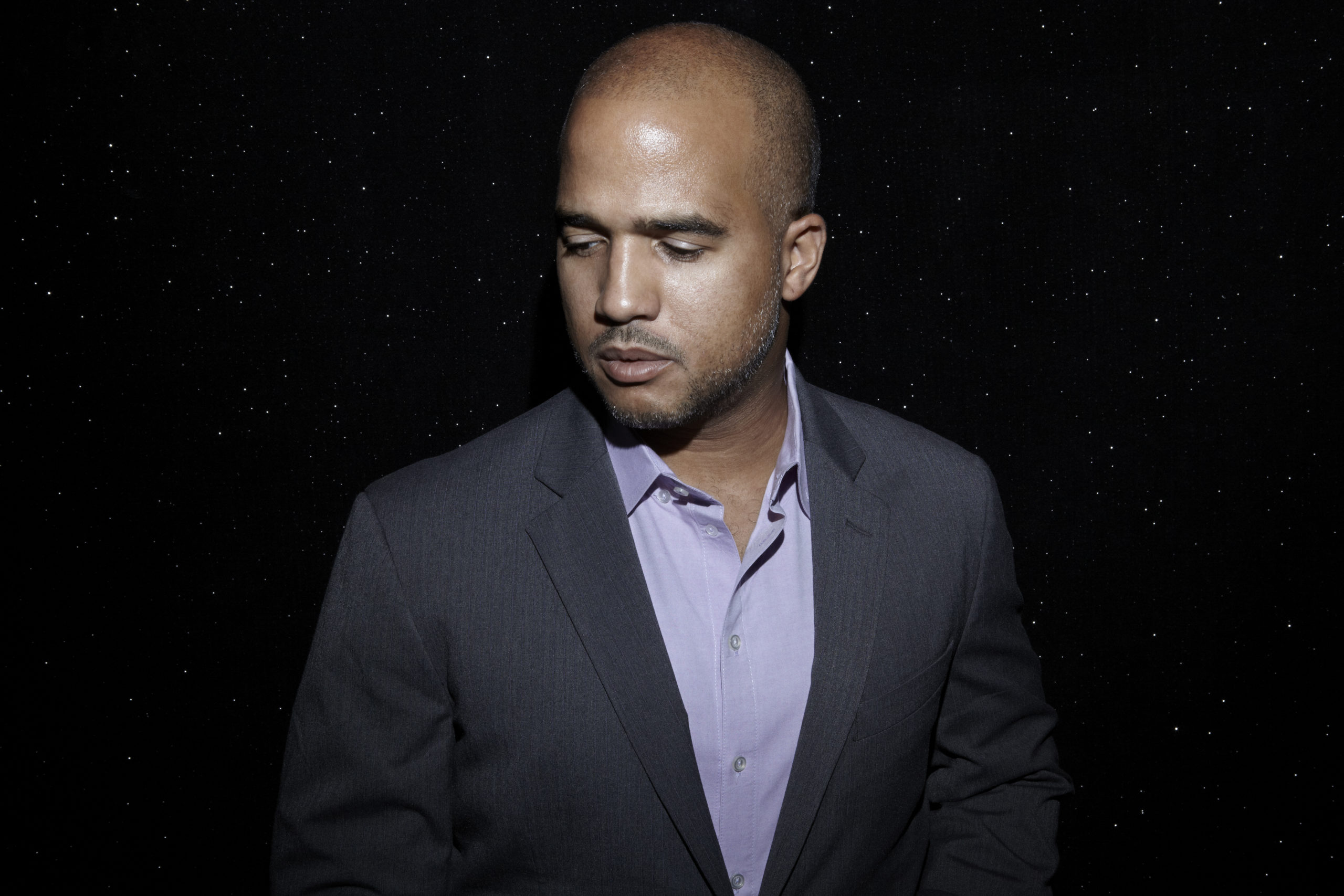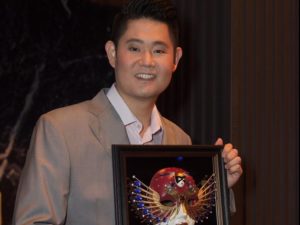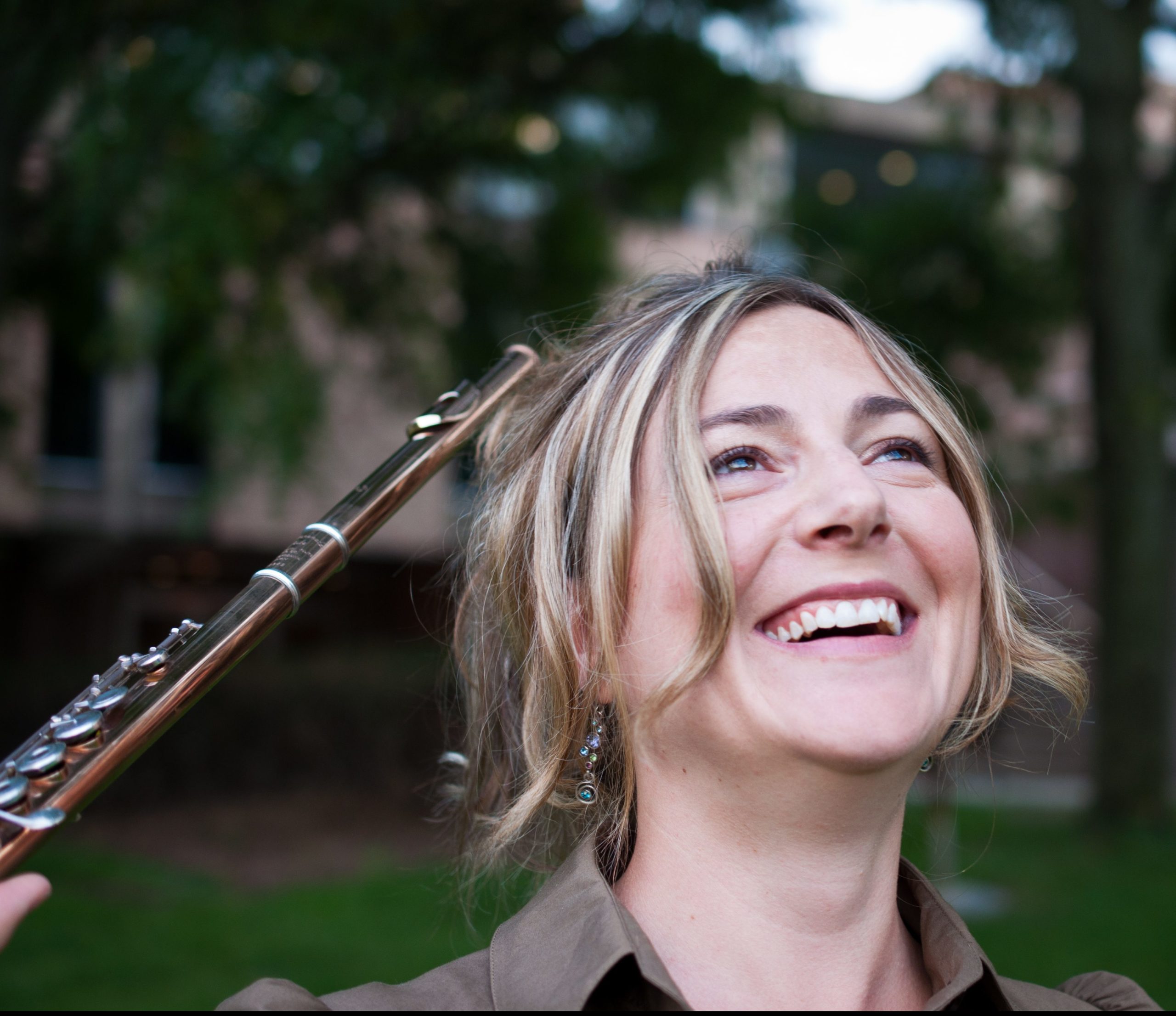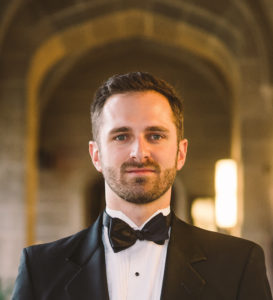SMTD Alumni Reflect on Their Top Honors
The Long View
They say it’s an honor just to be nominated, but after four Tony nods over a 14-year span—and a successful and varied career as a stage actress—Celia Keenan-Bolger, BFA ’00 (musical theatre) was eager to take home a trophy. “With each nomination, I found that my desire to win became greater,” she explains. “This was not a comfortable feeling because I didn’t become an actor to win a Tony Award. But I realized that when you love something as much as I love being an actor, and you work at it for almost 20 years, that kind of recognition becomes more meaningful.” Keenan-Bolger finally got her wish in June 2019, when she took home the Tony for Best Performance by an Actress in a Featured Role in a Play for playing Scout Finch in To Kill a Mockingbird. “Winning the award didn’t make me feel more confident or like a better actor,” Keenan-Bolger said. “Instead, I felt an enormous outpouring of love and support from so many people I care about and admire (many of them classmates from Michigan). And that is the thing I’ll hold onto forever.”
Recognition from the Broadway community has been a constant in Keenan-Bolger’s career. Her first Tony nomination, for Best Featured Actress in a Musical, came in 2005 for The 25th Annual Putnam County Spelling Bee—her first role on the Great White Way. “I was ecstatic and very honored to be recognized,” Keenan-Bolger says of that first nomination. More nominations followed: in 2012 for Peter and the Starcatcher, and in 2014 for The Glass Menagerie, both times in the Featured Actress in a Play category.
It may seem surprising that an SMTD musical theatre alumna has found the majority of her success in the straight play category, but the emeritus chair of the Department of Musical Theatre, Brent Wagner, saw her potential when she was still at U-M. “In our acting classes at SMTD, she never seemed to be ‘acting,’ thanks to the profound truthfulness in her work,” Wagner says of Keenan-Bolger. “Celia’s insights ignited growth in everyone—students and teachers alike—because she challenged us to reimagine scenes and characters in ways that could be both surprising and exhilarating.”
The Tony was only one highlight of Keenan-Bolger’s year. In October, she received the Michael Friedman Freedom Award from the American Civil Liberties Union (ACLU) and the New York Civil Liberties Union (NYCLU), which recognizes artists who fight for social justice. The organizations commended Keenan-Bolger for “using her talent and voice to educate, create dialogue, and catalyze social change both on stage and off.”
“The Friedman Award was maybe as meaningful to me as the Tony Award,” Keenan-Bolger says, explaining that along with her love of the theatre, standing up for what is right has always been a driving force in her life, following the example set by her parents when she was growing up in Detroit. “I’ve tried to do my small part in fighting for the things I believe in and amplifying the voices of those with less privilege than myself,” she says.
Performing protest
Another alumnus who combines art and activism is Daniel Bernard Roumain, MM ’95, DMA ’00 (composition). DBR, as he is known, has continuously used his creative powers to draw attention to social injustice. His recent work includes the score for The Just and the Blind, an interdisciplinary performance commissioned by Carnegie Hall that “illuminates the unseen and under-heard experiences of incarcerated youth and the realities their families face.” In November, DBR performed his “Protest Songs” in Burlington, Vermont, playing the violin for 24 hours straight as a demonstration against the Trump administration and its policies.
Earning his degree at SMTD, and especially studying under William Bolcom, was extremely influential to DBR’s development as an artist. “Professor Bolcom is one of the most important teachers of my life,” he explains. “He gave me a sense of how to be a working composer, how to be a world-class performer, how to collaborate really well with other artists. I think I learned how to be a real professional, and how to focus on my craft, both on and off stage.”
In recognition of his contributions to the music world, DBR was awarded the 2019 Goddard Lieberson Fellowship in Music by the American Academy of Arts and Letters, a prestigious honor given to mid-career composers of “exceptional gifts.” Always conscious of how his career can help others like him, DBR is most grateful for what this award means in terms of representation: “I can say it this way: as a black, Haitian-American composer, there were not many of us doing the kind of work that I’m doing, let alone winning awards. So it’s important in that sense.” The fellowship comes with a $15,000 prize, which DBR intends to use to create live/work spaces for other artists. Even as he reaches the pinnacle of his profession, he remains committed to helping others achieve.
Hip hop scholarship
For Mark Katz, MA ’95, PhD ’99 (musicology), winning a major award provided both a validation of his work and the motivation to continue a non-traditional line of inquiry. Now a professor at the University of North Carolina at Chapel Hill, Katz has devoted much of his career to the study of hip hop and how it bridges cultural divides. In 2016, the Royal Musical Association (RMA) awarded him the Dent Medal, given to mid-career scholars in recognition of their outstanding contributions to musicology.
“I was absolutely thrilled to get the award,” Katz says. “It was immensely gratifying for many reasons—because I joined a list that included many of my field’s most renowned scholars because it recognized the value and impact of my work, and because I was the first scholar of hip hop (and popular music generally) to receive the award.” Winning the medal meant giving a keynote address at the RMA conference that year, and Katz was encouraged by the overwhelmingly positive reception his work received, despite the audience’s unfamiliarity with the subject. “It gave me the confidence to be bold and continue to push my research in this nontraditional area,” he says.
Katz credits two mentors from SMTD for shaping him as a scholar: Richard Crawford and Glenn Watkins. “They modeled for me a powerful combination of intellectual curiosity, scholarly rigor, and human decency,” he says. All three characteristics are on display in Katz’s latest book, Build: The Power of Hip Hop Diplomacy in a Divided World, which draws on his experience leading the Next Level Cultural Diplomacy Program. Founded in 2013 and funded by the U.S. Department of State, Next Level sends groups of hip hop artists to work with underserved youth around the world. To date, they have worked in more than 30 countries on six continents.
Hitting a high note
Bridging cultural divides is also a theme for Vince Yi, DMA ’11 (voice), who has built a career as a countertenor on the Russian opera stage. In 2019, Yi won a Golden Mask Award—similar to a Tony or a Grammy but awarded for all categories of stage work in Russia—for best male actor in an opera. “It’s probably too early for me to say what impact this will have on my career,” Yi says, “but it certainly helps to validate my work in the contemporary opera industry.”
Yi won the award for a production of Handel’s Il Trionfo del Tempo e del Disinganno (The Triumph of Time and Truth), with an all-male cast of three countertenors and one tenor. “The director, Konstantin Bogomolov, was very well known in Russia for his controversial and radical theatre work, but had never directed opera,” Yi explains. “He had each of us play a woman at some point in the show, he portrayed serial killers and terrorists, and he showcased a gay love story because he knew the Russian audience would be uncomfortable. He wanted to change people’s perception of what is right or wrong.” Despite the cultural differences, Yi says the audience reception was largely positive, and his winning the Golden Mask confirmed that. “One of the things an international award like this shows is the power of music to connect people and transcend politics,” he says. “In a sense, this award restores and reminds me of my faith in the broader humanity of the world.”
During his time at SMTD, weekly voice lessons with Melody Racine were a highlight for Yi. “Her supportive and positive attitude helped me navigate the program,” he says. “She also helped me discover my upper vocal range, giving me the tools to access it. My career is based on this upper extension because countertenors with a soprano range are rare and in huge demand throughout Europe. If I didn’t cultivate this part of my voice with Melody, I probably wouldn’t have a career.”
Winning isn’t everything
Laura Karpman, BM ’80 (composition and voice) is no stranger to awards: she has won four Emmys for scoring documentary television, and a Grammy for the album of Ask Your Mama, a multimedia work starring the late Jessye Norman, MM ’68 (voice). She has garnered a slew of other nominations and represents the music branch on the Board of Governors of the Academy of Motion Pictures Arts and Sciences, which oversees the Oscars.
Still, Karpman insists that awards have never motivated her career. “I have mostly thought about just getting very good at becoming a really excellent composer,” she says. “Awards are so very yummy, but it’s about just doing good work all the time, whether there’s an award involved or not.” In fact, Karpman says, winning awards hasn’t always opened doors in her career. “Sometimes they have a strangely opposite effect: people think that you’re too expensive!”
Karpman, who attended Juilliard for her doctorate after graduating from SMTD, says that every step of her education has contributed to her success. It’s the little things from her time in Ann Arbor—a theory professor playing an opera scene from memory to talk about register, learning ear training and keyboard harmony from Marianne Ploger—that have stayed with her the most. “These are the skills that I use daily,” she says.
The first step
For an artist just starting out, an early-career award can provide an essential entry point to a tough business. That was the case for Ambika Raina, BFA ’15 (dance) who won a 2019–20 “Observership” from the Stage Directors and Choreographers Foundation (SDCF). After an extensive application process, SDCF selects a class of roughly 100 early-career directors and choreographers who are then eligible to apply for around 30 paid positions working with master artists. Raina earned one of those positions, joining renowned choreographer Camille A. Brown during the development of Ntozake Shange’s For Colored Girls at The Public Theater in New York.
Raina had the chance to collaborate extensively with Brown’s team. “I helped with teaching and reviewing choreography, gave notes, and stepped in when people were missing at rehearsal,” she says. “I was there almost every day for eight weeks straight, from rehearsal day one to opening night, so I really saw all the ups and downs of the process. It was a valuable learning experience to work under the bureaucracy that theatre can be, and see how choreographing for theatre means being part of a huge team—something that I hadn’t experienced as a choreographer of my own work.” More than anything, Raina appreciated the up-close look at Brown’s process. “She really digs into our power as women of color telling our stories, pulls out something special from the people around her, and leads by example,” Raina says.
Crossing boundaries between concert and theatre choreography is something that Raina experienced often during her time at SMTD. “The spirit of Michigan is interdisciplinary—in study, research, and pursuits,” she says. “I never felt restricted to one department or genre. My time there was definitely defined by exploring and experimenting, and I’ve continued to do that in the years since, allowing my craft and my goals to morph as I take in new experiences.” Now that she has earned union status with SDCF, Raina hopes to continue on the path that this award has opened for her: “it’s been such a stepping stone in my pursuit of choreographing for theatre.”
What other alumni had to say about their awards and recognitions
Benj Pasek and Justin Paul, BFA ’06 (musical theatre)
2018 Grammy
2017 Oscar
2017 Tony
“Beyond the exceptional training we received as performers, SMTD also enabled us to pursue our passion as writers. Once we realized that we wanted to explore careers as songwriters, our professors tailored our classes especially to support this new focus. Where other programs would have encouraged us to fit into an existing mold, Michigan helped craft a curriculum that was unique to us. While accolades are wonderful to receive, the real excitement of getting any award is knowing that your teachers and colleagues respect and believe in your work. Michigan was the first time we found people who believed in us, and who ultimately gave us the confidence to believe in ourselves.”
Brandy Hudelson, MM ’06 (flute)
2015 National Flute Association Newly Published Music Competition
“I won two first-place awards in two separate categories for the National Flute Association Newly Published Music Competition, one for Solo Flute for my piece Wild Nightingale for Solo Beatbox Flute and another in Chamber Music for my quartet, Loops for Beatbox Flute Quartet. The awards included a performance of both works at the following National Flute Association Convention, and the recognition from these awards has opened the doors for numerous performance and teaching opportunities, from solo performances, covering sabbaticals, giving workshops and masterclasses, and allowing me the flexibility to pursue multiple paths as an artist.”
Dominique Morisseau, BFA ’00 (theatre)
2018 MacArthur Foundation Genius Grant
“Getting the MacArthur was most significant to me because of the path to receiving it. It takes a conversation with more than 30 colleagues and several recommendations before you are awarded the Genius Grant, all with no knowledge of your own. So for me, this means that 30+ people in my field recognize and vouch for my mastery of my craft, and that is beyond life-changing. It is life-affirming. The financial part of the award is a huge bonus opportunity to invest more courageously into my art.”
Joseph Balistreri, MM ’11 (organ) & Colin Knapp, BM ’14 (organ)
2015 Diapason 20-under-30 award
Joe: “Receipt of the 20-under-30 award from The Diapason was a delightful surprise. While the editors noted my instrumental and choral contributions to the field, they especially remarked on my work for national professional organizations for church and cathedral musicians, aiming to further the mission of sacred music nationally. Professor Emeritus Jerry Blackstone once said that the best music jobs are 95 percent administration, 5 percent mountaintop music-making. I’m certainly enjoying mountaintop experiences, making sacred music with wonderful singers and instrumentalists at the highest level internationally. Just as importantly, I’m helping people in Detroit and beyond to find a similar path to the top of the mountain.”
Colin: “While working toward my performance degree at U-M, I was strongly encouraged and supported by my professors to pursue my passion in arts administration. I was recognized for arts management, audience development, fundraising, and community engagement by making organ performances accessible, comfortable, and sustainable in 21st-century life. Acknowledgment as one of Diapason’s 20-under-30 brought visibility to my work building a grassroots organ festival, and validation of my project management talents as I furthered my career post-graduation with Michigan Opera Theatre. Currently, I balance my responsibilities at a major cultural organization while continuing to perform, emphasizing collaboration in my endeavors.”












